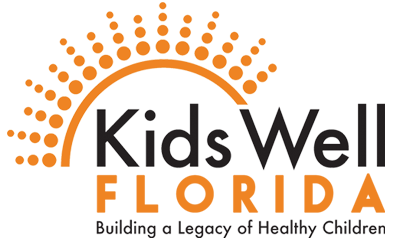By Cory Pippin, CBS 12
Ten-thousand chronically ill children in our state are being dropped by their specialists, denied proper treatment, and refused essential equipment.
It’s the result of a change to Florida’s healthcare designed to save the state money.
CBS12 Investigates uncovered this cut in costs is a cut in care.
For decades, families with severely ill children rely heavily on the state system for help, but now the system has changed, and so has the help.
Like for Abby.
She’s a bubbly four-year-old who loves toys, eating sweets, and listening to music.
This little girl is the youngest of three daughters in the Muszynski family.
When Abby was born, the family was forced to face the reality that her life would never be normal.
“This is some of the oxygen masks and tubing that go with Abby’s oxygen tanks,” her mother Kim Muszynski said.
Abby has Aicardi, an extremely rare, life threatening neurological disorder which affects the formation of the brain.
She’s blind in her left eye, can’t walk or talk, and suffers from prolonged and potentially deadly seizures.
“She’s completely dependent on me for everything,” Kim said. “For feeding, for juice, I am her voice, I am her eyes.”
Abby needs to follow a strict schedule of doctor’s visits, medications and physical therapy.
She gets help from Florida’s Children’s Medical Services (CMS).
It’s part of the state’s Medicaid program to help kids with severe and chronic health problems, at no cost to them.
Not only did the Muszynskis get help paying doctor bills, they also got help with the specialists and services Abby needs.
However; that help was short lived.
CMS dropped Abby’s coverage last summer.
“We’ve faced cutbacks that have affected her equipment,” Kim said. “We’ve received denials, rejections from doctors; we were dropped from two neurologists,”
Abby is one of 14,029 kids who were dropped from Florida’s specialty Medicaid plan for children with chronic health issues.
CBS12 Investigates uncovered state records showing the number of kids in the CMS program down from 77,643 to 63,614 in 2015.
The drop happened after new state law privatized the Medicaid system in Florida.
Former director of the Florida chapter of the American Academy of Pediatrics Dr. Louis St. Petery says it was done to save the state money, but the new law did more harm than good.
“Those were kids with aids, kids with heart disease.”
“Those were kids with aids, kids with heart disease,” St. Petery said. “All of which are really very serious problems, so now they’re in regular Medicaid HMOs, who are ill equipped to handle kids with complex problems,”
And a federal court judge agrees.
He handed down this 153-page ruling stating the state was violating federal law.
The Florida Department of Health also refused to answer our questions on camera.
Instead, they sent us this statement:
“To meet legislative direction to ensure that children with both chronic and serious medical conditions were provided access to the CMS Plan, the department rescreened the CMS Plan population. The department took special care to ensure that any children identified as being better served by another Medicaid Managed Medical Assistance plan was supported through their transition.
The clinical eligibility rule can be viewed here.
There are two pathways to determine clinical eligibility for the CMS Plan. A parent can request a CMS clinical eligibility screening or rescreening. To request a CMS Clinical Eligibility Screening, parent’s should contact their local CMS Plan Office. If you have participated in a screening and have questions or concerns, please call 1-855-901-5390.
We are committed to ensuring that any child in the CMS Plan receives all medically necessary services. One of the benefits of the CMS Plan is enhanced care coordination meaning every child has a care coordinator who is their specific point of contact within the plan to address any concerns they have or difficulty receiving services. As always, we’re also available at the State Health Office to help address any parent’s concerns.”
So while politicians play politics, Abby fights to live.
“I have just poured 150-percent of myself to get Abby to survive,” Kim said.
“I have just poured 150-percent of myself to get Abby to survive.”
Her life expectancy will increase to 18 years, if she makes it to her next birthday.
CBS12 Investigates tried to contact Representative Travis Hutson who sponsored of the new law, but he did not return our calls.





February 17, 2016
Blog